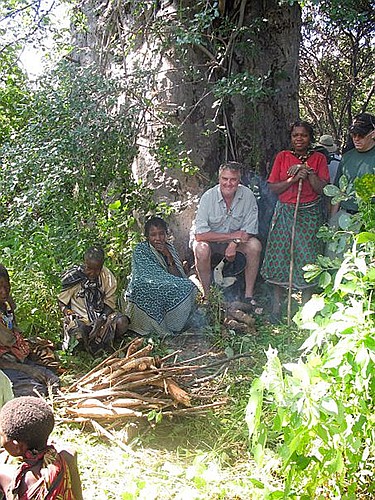- November 23, 2024
-
-
Loading

Loading

Pat Williams is giving back through his nonprofit, Coaching the Global Village.
In Pat Williams’ home office, hung on a wall to the right of the doorway, is a map of the world. In it, dozens of red pins freckle the mock-antique paper, from sea to tea-colored sea. Beijing, Jamaica, Ghana — each pin reminds him where he has been.
Williams has had a fortunate life — nice upbringing, good family. His relatives are lawyers and CEOs. He used to be a psychologist; he has published four books. He is happy, healthy. In short: Williams is lucky.
That’s why he formed Coaching the Global Village, a grassroots nonprofit aimed to, as he says, “empower people to do what they want.”
He has worked in fields as diverse as healthcare, childcare, career counseling and AIDS clinics.
“It’s really for the people who don’t have anything ‘wrong’ with them,” he says, comparing it to psychoanalysis. “They don’t have anything ‘broken’ … (Coaching) is for people that are good but want to be great … people who want to live beyond mediocrity.”
The movement started in executive leadership training, then moved into one-on-one private coaching.
“A lot of people can feel empowered if they’re asked, ‘What are your ideas?’” Williams says. “A coach asks questions. A coach does not give answers.”
In Ghana, Williams coached Christian missionaries how to use their role to uplift the community — not teach them how to be missionaries.
You can give a lot of these villages books, Williams says, but what if the people living there can’t read? Coaching fosters “tribal councils,” he says. “… If you ask the right questions, brilliant solutions come from that.”
Then Williams realized there are plenty of “underserved” right here in the United States. The project he is most proud of is a youth diversion program in Colorado. According to Williams, after his sessions the group rebranded itself, changing its label from “at risk” to “at choice.” Graduated members returned to coach later generations. They franchised their model.
“In coaching, we do a lot of language changing — we call it re-shifting,” Williams says. “ … It’s to teach people to respond to life rather than react to life. If you pause and realize that you’re always at choice, you might brainstorm … what else are my alternatives? What else could I do?
“You’re always at choice. It’s never one or the other.”
In Flagler, Williams will work with the Florida Foundation. He hopes to find other local nonprofits and partner with them, as well, to bring coaching to the youth and perhaps create a high school peer-coaching program.
“There’s a lot of people that want to help, but they don’t know where to go,” he says. He says he hopes to connect the dots.
Next week, Williams will be training the Kansas Leadership Council. In July, he’ll be working with the Native American Women’s Council of Phoenix.
“Coaching is my calling,” he says, “… because I think people can have richer lives than they know, if they get outside the box of their limitations … This is my legacy … I want to be the instigator, the inspirer … My dream would be that someone picks up this idea, then wins the Nobel Peace Prize — and I’m there to cheer them on.”
Visit www.coachingtheglobalvillage.org for more information.